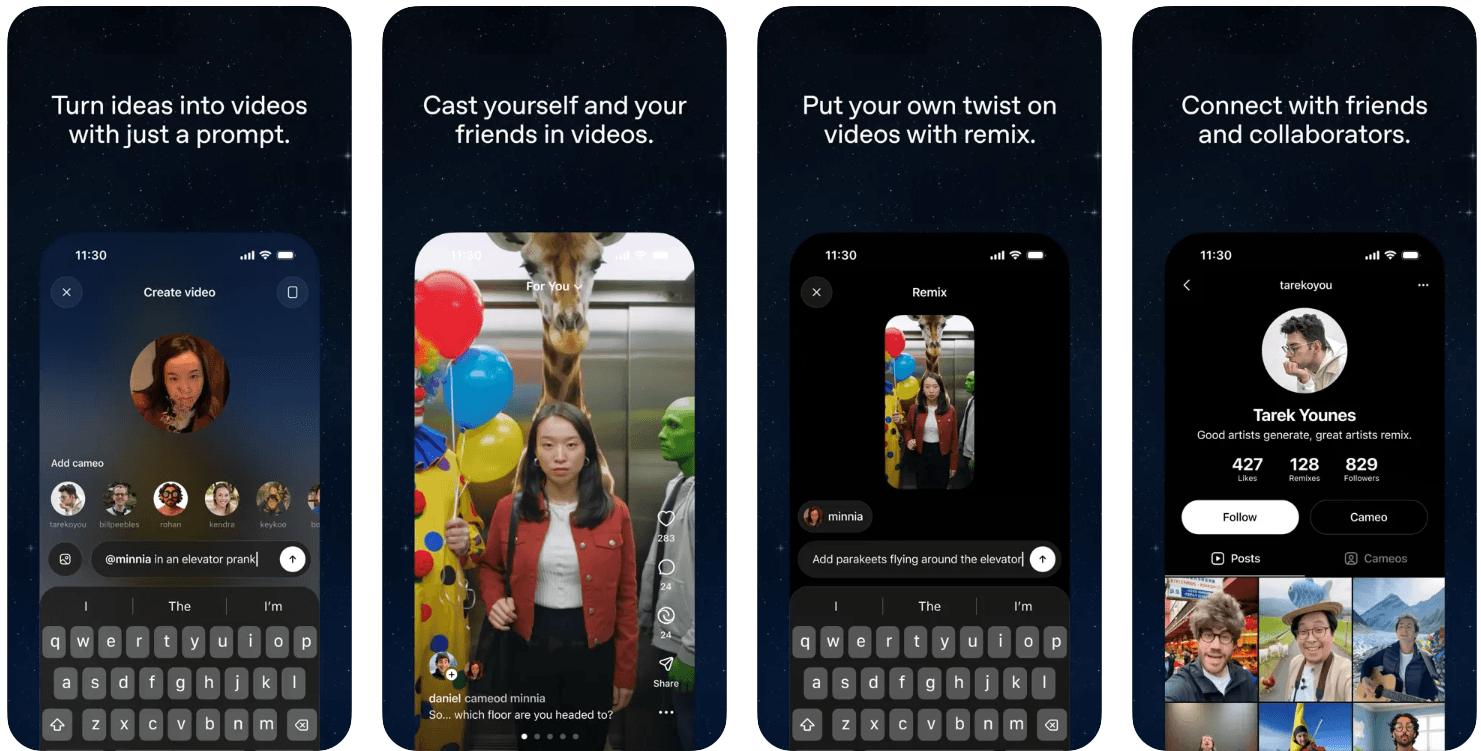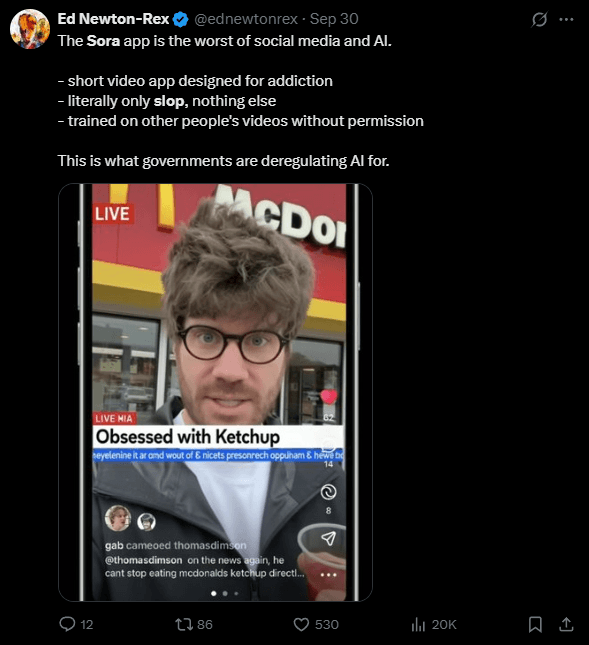Sam Altman says OpenAI would shut down Sora app if users' lives don't improve

Key Points
- OpenAI has launched Sora, an app that lets users create and share AI-generated short videos, including a "Cameo" feature that places users or their friends as main characters in the clips.
- Members of the AI community have raised concerns that Sora mostly produces "AI slop," meaning generic, superficial content designed to maximize reactions but offering little real value.
- OpenAI CEO Sam Altman has publicly recognized the risk of addictive content feeds and says the company will monitor Sora closely, with the option to shut the app down if it develops in a negative direction.
OpenAI has launched Sora, a new app that lets users create and share short videos using the Sora 2 video model.
The app targets anyone looking for personalized, easy-to-watch content. One standout feature, called "Cameo," lets people insert themselves or friends directly into AI-generated clips.
Critics warn app could unleash flood of "AI slop"
The app quickly drew criticism from the AI community, with critics warning about "AI "slop"—generic, low-value content designed to maximize engagement while lacking creativity or substance. Like TikTok and similar platforms, Sora's format relies on algorithms that optimize for quick reactions, leading to content that often feels interchangeable and shallow.

OpenAI CEO Sam Altman saw the criticism coming. In a statement, he warned about "a degenerate case of AI video generation in which we all get sucked into an RL-optimized junk feed." RL-optimized refers to reinforcement learning algorithms that maximize user engagement, often sacrificing quality and diversity.
Altman acknowledges the risk is real, but says OpenAI is actively working to avoid it. Rather than chasing short-term engagement, he explains that Sora is designed to prioritize long-term user satisfaction. According to Altman, users will be able to tailor their feeds to match their mood, interests, or specific goals. The app is intended to help people achieve what he describes as their true goals, whether that's getting fit, starting a business, or "be more connected to your friends."
Same mechanics, different promise
Yet Sora uses many of the same features that draw criticism on other platforms: heavy personalization, emotional triggers, and social sharing tools. These are known to encourage addictive behavior. While OpenAI claims Sora supports long-term goals, its design centers on short-form video and quick feedback loops.
Altman says OpenAI will watch closely to see how Sora affects people's lives. If most users don't experience real, positive changes in their quality of life, he says the company will consider "far-reaching measures," including shutting down the app entirely.
Success, according to Altman, means "the majority of users, looking back on the past 6 months, should feel that their life is better for using Sora that it would have been if they hadn't." If that's not the case, Altman says OpenAI would make "significant changes," and if they can't fix the problem, they would even "discontinue offering the service."
But Altman hedges his bets in the same breath. He acknowledges that some people might just want to scroll endlessly, even if it hurts them. "And if you truly just want to doom scroll and be angry, then ok, we'll help you with that," he said, effectively putting the responsibility back on users—much like every other social media platform.
AI News Without the Hype – Curated by Humans
As a THE DECODER subscriber, you get ad-free reading, our weekly AI newsletter, the exclusive "AI Radar" Frontier Report 6× per year, access to comments, and our complete archive.
Subscribe now